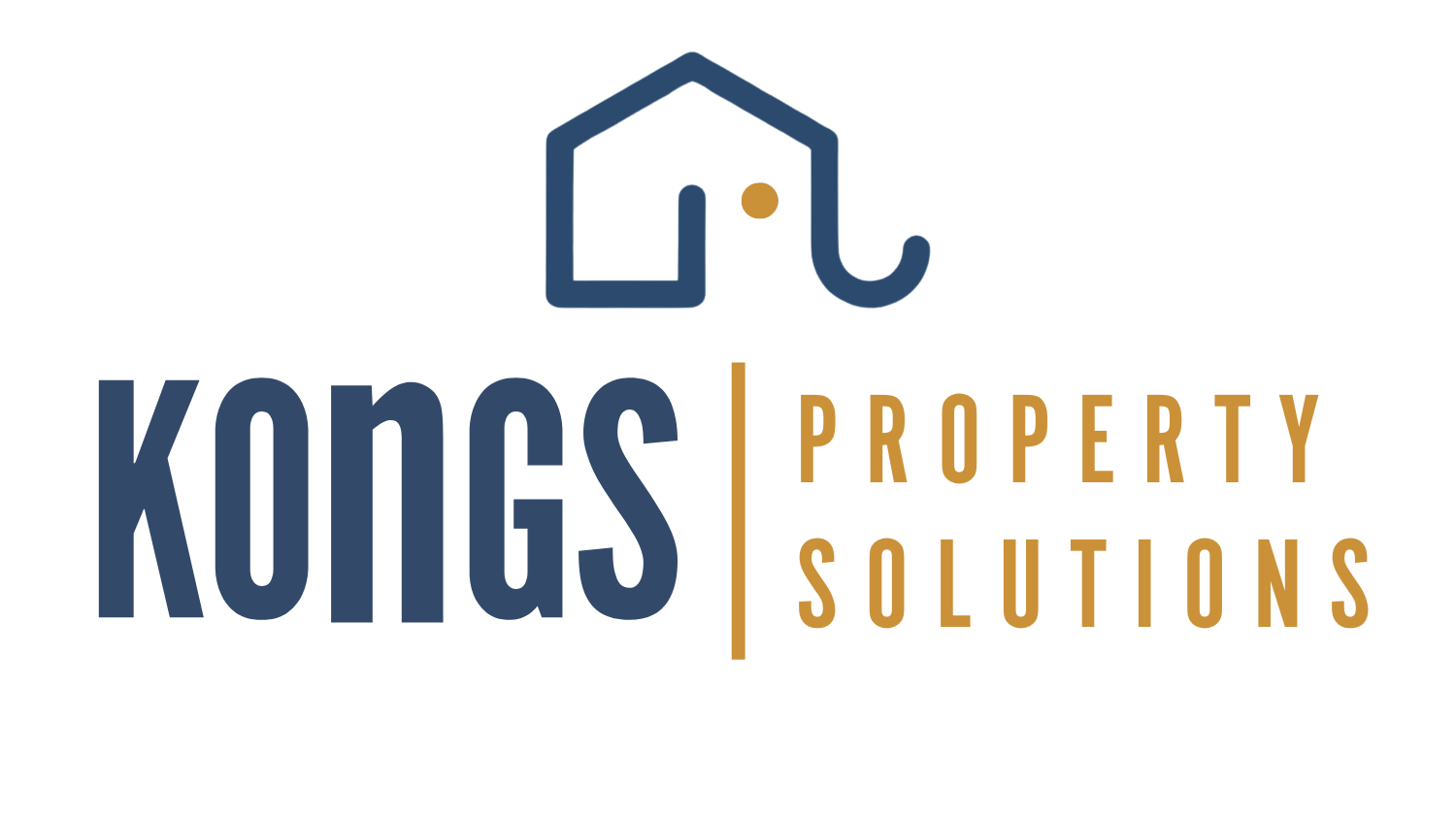
Tired of Being Stuck in an Old House? Sell As Is and Start Fresh!

Table of Contents
1. Introduction
2. What Does “As Is” Mean?
3. Benefits of Selling “As Is” for Cash
4. Potential Drawbacks
5. Steps to Selling “As Is” for Cash
6. Ensuring a Smooth Transaction
7. Tips for Maximizing Your Sale Price
8. Real-Life Success Stories
9. Choosing the Right Cash Buyer
10. Conclusion: Embracing the Simplicity of Selling “As Is”
11. Frequently Asked Questions (FAQ)
Introduction
Selling a house can often be a complex, time-consuming process filled with uncertainties. Traditional sales methods typically involve extensive repairs, home staging, and a significant amount of time waiting for the right buyer to come along. However, for those who prioritize convenience and speed, selling a house “as is” for cash can be an ideal alternative. This approach has gained traction in the real estate market for its simplicity and efficiency.
In this comprehensive guide, we will delve into every aspect of selling your house “as is” for cash. From understanding the concept to navigating the process and ensuring you get the best possible deal, this guide covers it all. By the end, you’ll be equipped with the knowledge to make informed decisions and take advantage of this streamlined selling method.
What Does “As Is” Mean?
When a property is sold “as is,” it means that the seller is offering it in its current state, without making any repairs or improvements. Buyers are fully aware that the house will come with all its existing issues, whether they are minor cosmetic flaws or significant structural problems. This type of sale transfers the responsibility of any necessary repairs to the buyer.
Detailed Understanding of “As Is” Condition
Selling “as is” does not absolve the seller from disclosing known issues with the property. Sellers are still legally required to provide information about any defects or problems they are aware of. This could include issues like a leaky roof, outdated electrical systems, or foundation cracks. Transparency is crucial in “as is” sales to avoid legal complications after the transaction.

Benefits of Selling “As Is” for Cash
Speedy Transactions
One of the most significant benefits of selling your house “as is” for cash is the speed of the transaction. Traditional home sales can take several months, from listing the property to closing the deal. In contrast, cash sales can often be completed in a matter of weeks. This is particularly advantageous for homeowners who need to sell quickly due to financial constraints, job relocations, or personal circumstances.
No Repairs Needed
Another major advantage is the elimination of repair costs. Preparing a house for sale in the traditional market often involves significant expenses. Sellers might need to address cosmetic issues, make structural repairs, or even undertake major renovations to attract buyers and meet their expectations.
Selling “as is” removes this burden. Homeowners can avoid the stress and financial strain of fixing up their property. This is especially beneficial for those who may not have the funds or time to invest in repairs. By offering the house in its current condition, sellers can save money and effort.
Lower Selling Costs
In addition to saving on repair costs, selling “as is” for cash can also reduce other expenses associated with traditional home sales. Typically, sellers must pay real estate agent commissions, closing costs, and various fees throughout the selling process. These costs can add up to a significant amount.
When selling for cash, many of these expenses are minimized or eliminated. Cash buyers often handle the closing costs, and there are no real estate agent commissions to worry about. This can result in substantial savings, making the overall transaction more financially advantageous for the seller.
Avoiding Market Uncertainties
The real estate market can be unpredictable. Economic fluctuations, changes in interest rates, and local market conditions can all impact how long a house stays on the market and the price it ultimately sells for. For sellers, this uncertainty can be stressful and costly.
Selling “as is” for cash offers a way to sidestep these market uncertainties. Cash buyers are typically less influenced by market conditions and are more focused on the property’s potential. This reduces the risk of the house languishing on the market, which can lead to price reductions and increased holding costs.

Convenience
For many sellers, the convenience of selling “as is” for cash is the most appealing aspect. Life events such as inheriting a property, going through a divorce, or needing to relocate quickly can make the traditional selling process daunting and impractical.
Selling “as is” simplifies the process. Without the need for repairs, staging, or extensive marketing, the transaction becomes straightforward and hassle-free. This convenience allows sellers to focus on their next steps without the added stress of managing a complicated sale.
Cash buyers, often investors or companies specializing in quick transactions, are usually ready to move forward without the delays associated with mortgage approvals and inspections. This streamlined process allows sellers to access funds swiftly, providing financial relief or enabling them to move forward with other plans.

Potential Drawbacks
Lower Sale Price
While there are many benefits to selling “as is” for cash, it’s important to consider the potential drawbacks. One of the primary disadvantages is that sellers typically receive a lower sale price compared to what they might get through traditional methods. Cash buyers often seek discounts to account for the risk and investment required to fix up the property.
However, it’s essential to weigh this lower sale price against the costs saved on repairs, commissions, and holding costs. In many cases, the net proceeds from an “as is” sale can be comparable or even more favorable when considering the reduced expenses.
Limited Buyer Pool
Not all buyers are interested in “as is” properties. This approach usually attracts investors, flippers, or companies specializing in distressed properties. As a result, the pool of potential buyers is smaller compared to a traditional sale.
While this might seem like a limitation, it can also be an advantage. Cash buyers are often more motivated and ready to close quickly, reducing the uncertainty and delays associated with traditional buyers who need to secure financing.
Disclosure Requirements
Selling “as is” does not mean sellers can hide known issues with the property. Disclosure requirements still apply, and sellers must provide information about any defects or problems they are aware of. Failure to disclose known issues can lead to legal complications and potential liability after the sale.
To ensure a smooth transaction, it’s crucial to be transparent and honest with potential buyers. Providing a pre-listing inspection report can help establish trust and clarify the property’s condition upfront.

Steps to Selling “As Is” for Cash
Assess the Property
Before listing your house “as is,” it’s important to have a thorough understanding of its condition. Conducting a pre-listing inspection can help identify any major issues that need to be disclosed to potential buyers. This step is crucial for setting realistic expectations and ensuring transparency.
An inspection will provide a detailed report on the property’s condition, including any structural, mechanical, or cosmetic problems. While you won’t be making repairs, knowing the extent of these issues will help you communicate effectively with buyers and avoid surprises during the negotiation process.
Research Cash Buyers
Finding reputable cash buyers is a critical step in the process. These can include real estate investors, house-buying companies, or individuals looking for investment properties. Start by researching local cash buyers and checking their reviews, ratings, and references.
Look for buyers with a track record of successful transactions and positive feedback from previous sellers. Be cautious of buyers who offer deals that seem too good to be
true or who lack credibility. A reputable cash buyer will be transparent about their process, offer fair prices based on the property’s condition and market value, and provide references upon request.
Set a Realistic Price
Pricing your property accurately is crucial for attracting potential buyers and maximizing your sale price. Work with a real estate agent or appraiser to determine a fair market value for your house in its current condition. Consider factors such as comparable sales in the area, the extent of repairs needed, and any unique features or drawbacks of the property.
Keep in mind that selling “as is” may require pricing the house slightly below market value to account for its condition. However, this doesn’t mean you have to accept lowball offers. By setting a realistic price based on thorough research and expert advice, you’ll increase your chances of attracting serious buyers and achieving a successful sale.
Market Your Property
Even though you’re selling “as is,” effective marketing is still essential for attracting potential buyers. Showcase the property’s potential and highlight its best features, such as location, layout, or investment opportunities. Utilize high-quality photos, virtual tours, and compelling property descriptions to generate interest and create a positive first impression.
Consider targeting your marketing efforts towards cash buyers, investors, and individuals looking for fixer-upper properties. Explore online platforms, social media, and local real estate networks to reach potential buyers who are actively seeking “as is” properties.
Negotiate Offers
Once you start receiving offers, be prepared to negotiate with potential buyers. While cash buyers may expect a discount for purchasing “as is,” don’t be afraid to counteroffer and negotiate terms that are favorable to you. Consider factors such as the buyer’s willingness to close quickly, their ability to cover closing costs, and any contingencies they may have.
Keep communication open and transparent throughout the negotiation process. Be honest about the property’s condition and any known issues, and work collaboratively with the buyer to find common ground. Remember, the goal is to reach a mutually beneficial agreement that satisfies both parties and leads to a successful sale.
Close the Deal
Once you’ve accepted an offer, it’s time to close the deal. The closing process for cash transactions is typically faster and simpler compared to traditional sales. Work with a real estate attorney or title company to handle the paperwork and ensure all legal requirements are met.
During the closing process, the buyer will conduct a final walkthrough of the property to ensure it’s in the same condition as when the offer was made. Once everything is in order, funds will be transferred, and ownership of the property will be transferred to the buyer. Congratulations, you’ve successfully sold your house “as is” for cash!

Ensuring a Smooth Transaction
Preparing Documentation
Gathering the necessary documentation is crucial for a smooth transaction. This includes legal documents such as the deed, title insurance, and any relevant permits or certificates. Having these documents ready will expedite the closing process and minimize potential delays.
Legal Considerations
Selling “as is” for cash still involves legal considerations that need to be addressed. Consult with a real estate attorney to review contracts, ensure compliance with local regulations, and protect your interests throughout the transaction. A legal expert can provide valuable guidance and help you navigate any potential challenges that arise.
Working with Professionals
While selling “as is” for cash offers simplicity and convenience, it’s still advisable to work with professionals who can guide you through the process. Consider hiring a real estate agent experienced in cash transactions, a real estate attorney familiar with local laws, and a title company to handle the closing paperwork. Their expertise will help ensure a smooth and successful transaction from start to finish.
Tips for Maximizing Your Sale Price
Enhancing Curb Appeal
While you may not be making repairs, enhancing curb appeal can still make a difference in attracting buyers and maximizing your sale price. Simple improvements such as landscaping, painting the front door, or adding outdoor lighting can create a positive first impression and increase the perceived value of the property.
Highlighting Potential
When marketing your property, focus on its potential rather than its current condition. Emphasize opportunities for renovation, expansion, or customization that buyers can explore to enhance the property’s value. By highlighting potential, you’ll appeal to buyers looking for investment opportunities or willing to take on a fixer-upper project.
Effective Negotiation Strategies
Negotiation is a key aspect of selling “as is” for cash. Be prepared to negotiate terms that are favorable to you while also considering the buyer’s needs and priorities. Approach negotiations with a collaborative mindset, focusing on finding solutions that benefit both parties and lead to a successful outcome.

Real-Life Success Stories
Case Study 1: Quick Relocation
John was offered a job in another state and needed to sell his house quickly to relocate. Despite the property needing some repairs, John decided to sell “as is” for cash to expedite the process. Within two weeks of listing the property, he received an offer from a cash buyer and closed the deal shortly after. The streamlined transaction allowed John to move forward with his relocation plans without any delays.
Case Study 2: Inherited Property
Sarah inherited a property from her late grandmother but didn’t have the time or resources to manage it. Instead of investing in repairs and selling through traditional channels, Sarah opted to sell “as is” for cash. A local real estate investor expressed interest in the property and offered a fair price based on its condition. Sarah accepted the offer, and the transaction was completed within a month. Selling “as is” allowed Sarah to liquidate the inherited property quickly and without hassle.
Case Study 3: Avoiding Foreclosure
David was facing foreclosure due to financial difficulties and needed to sell his house fast to avoid losing it to the bank. With little time to spare, David decided to sell “as is” for cash to expedite the process. A cash buyer specializing in distressed properties made an offer that covered David’s outstanding mortgage balance, allowing him to avoid foreclosure and move on with his life.
Choosing the Right Cash Buyer
Evaluating Buyer Credibility
When selling “as is” for cash, it’s essential to work with a credible buyer who can deliver on their promises. Research potential buyers thoroughly, check their credentials, and ask for references from previous sellers. Look for buyers with a track record of successful transactions and positive feedback from satisfied clients.
Comparing Offers
Don’t settle for the first offer you receive. Shop around and compare offers from multiple cash buyers to ensure you’re getting the best possible deal. Consider factors such as the purchase price, closing timeline, and any additional terms or conditions included in the offer. By weighing your options, you can make an informed decision that maximizes your sale price and meets your needs.
Understanding Buyer Intentions
Before accepting an offer, take the time to understand the buyer’s intentions and motivations. Some cash buyers are investors looking to flip the property for a profit, while others may be individuals looking for a home to live in. Understanding the buyer’s intentions will help you negotiate effectively and ensure a smooth transaction that aligns with your goals.
Embracing the Simplicity of Selling “As Is”
Selling your house “as is” for cash offers a streamlined, hassle-free alternative to traditional home sales. By embracing this approach, homeowners can avoid the time-consuming process of repairs, staging, and negotiations, and instead, sell their property quickly and on their terms. While there are trade-offs involved, such as a potentially lower sale price, the benefits of speed, convenience, and reduced costs often outweigh the drawbacks. With careful planning, transparent communication, and the help of experienced professionals, sellers can navigate the “as is” selling process with confidence and achieve a successful outcome.
Frequently Asked Questions (FAQ)
1. Is selling “as is” for cash the right choice for me?
Selling “as is” for cash is a suitable option for homeowners who need to sell quickly, prefer a hassle-free transaction, or are unable or unwilling to make repairs to their property. It’s essential to weigh the benefits and drawbacks carefully and consider your specific circumstances before making a decision.
2. How do I find reputable cash buyers?
Researching potential cash buyers thoroughly is crucial for a successful transaction. Look for buyers with a proven track record, positive reviews, and references from previous sellers. Be cautious of buyers who make unrealistic promises or lack credibility.
3. What should I disclose when selling “as is”?
Even when selling “as is,” sellers are still required to disclose any known issues or defects with the property. This includes structural problems, mechanical issues, or other concerns that may affect the property’s value or safety. Failure to disclose known issues can lead to legal complications and potential liability after the sale.
4. Can I negotiate the sale price when selling “as is” for cash?
Yes, sellers can negotiate the sale price when selling “as is” for cash. While cash buyers may expect a discount to account for the property’s condition, sellers should still strive to achieve a fair price based on market value and the extent of repairs needed. Effective negotiation can help both parties reach a mutually beneficial agreement.
5. How long does it take to sell “as is” for cash?
The timeline for selling “as is” for cash can vary depending on various factors, including market conditions, property location, and buyer interest. In general, cash transactions tend to close faster than traditional sales, with some deals being completed in as little as a few weeks. However, it’s essential to be prepared for potential delays and work with experienced professionals to ensure a smooth and timely transaction.
